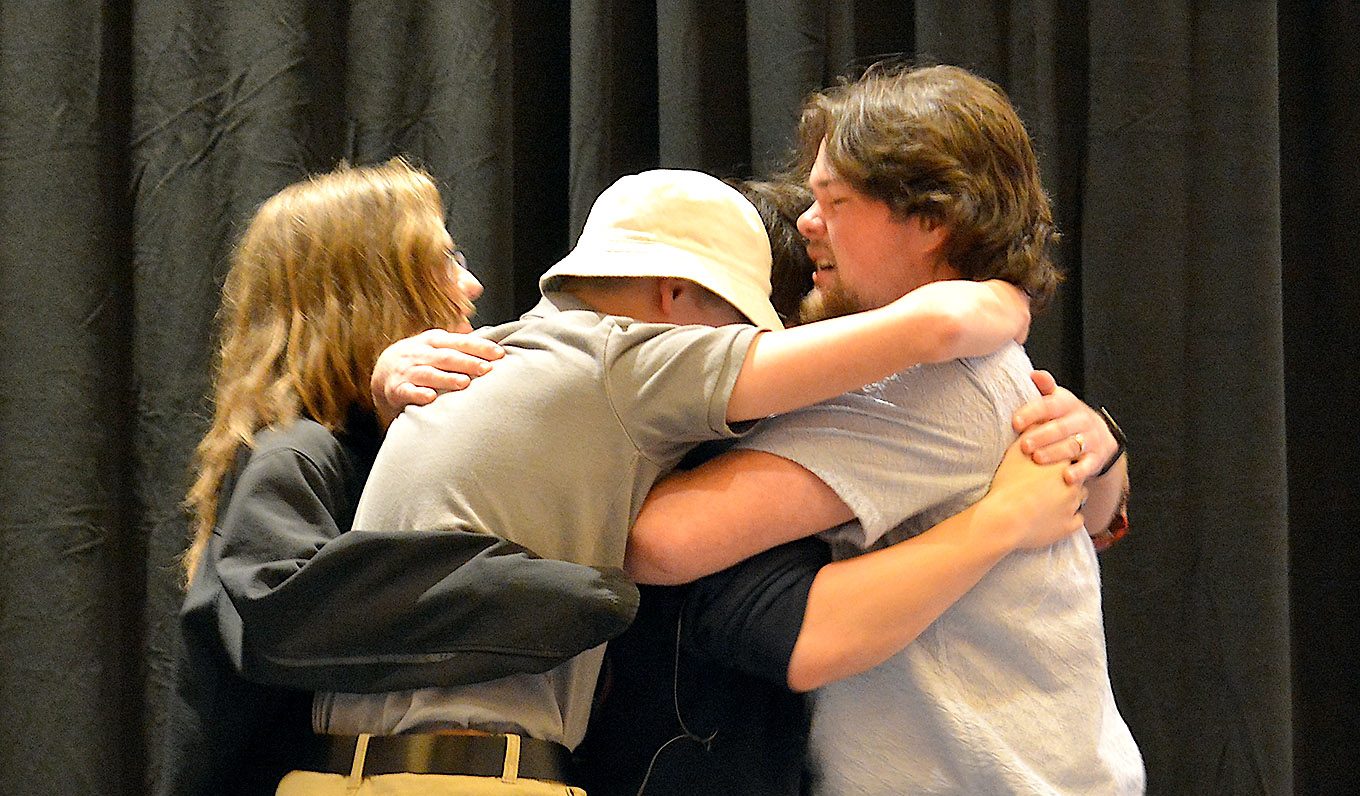Good Hope HS bans cell phone due to cyberbullying on mobile app
Published 11:45 am Saturday, December 13, 2014

- Good Hope High School administrators have banned cell phones from the campus in response to reportedly inappropriate and abusive messages posted about students on the mobile app Yik Yak.
Good Hope High School administrators have banned cell phones from the campus in response to reportedly inappropriate and abusive messages posted about students on the mobile app Yik Yak.
The ban comes on the heels of Cullman City Schools temporarily restricting cell phone use for Cullman High School students last month. Students couldn’t use their phones without an adult present in an effort to curb inappropriate posts generated about Cullman High School students and faculty on Yik Yak, Cullman City Schools Superintendent Dr. Doreen Griffeth said.
However, the restrictions at Cullman High only lasted a few days once students began policing themselves and took responsibility for the negative posts, she said.
“Our students stepped up and decided they wanted the full freedom to use their phones and didn’t want these posts to represent them or their community,” Griffeth said. “We’re training our kids to be responsible and alerting our parents to these issues when they come up.”
At Good Hope, students were notified early Thursday of the ban after several anonymous users posted offensive comments targeting students, said Houston Blackwood, assistant principal.
“So far, the kids have responded well, and we haven’t noticed any issues as we continue to monitor posts on the app,” he said. “We’ll evaluate how things are next week and make a decision on whether to lift the ban on cell phones.”
The Cullman city and county school systems join others across the country that are trying to get a handle on how to deal with Yik Yak posts aimed at students that include pornographic images, name-calling and threats of violence.
Users are allowed to post comments, or yaks, anonymously, similar to the forum website Reddit. Only messages sent within a 1.5-mile radius are displayed. Users can “up” or “down” vote comments, with more popular posts pushed to the top and unpopular ones pushed out of sight.
Griffeth said Cullman High students “down voting” inappropriate comments is what helped resolve the flood of “appalling” and inappropriate posts. Community and religious leaders also monitor Yik Yak which has acted as a deterrent as well, she said.
Very little personal information is required to set up a Yik Yak account, and you must be 17 years old to use it. Users can “flag” post as inappropriate, but it’s unclear what happens to those flags and how quickly they’re addressed.
In a statement to parents last month, Griffeth said students had been hiding behind the blanket of anonymity Yik Yak offers to post inappropriate and damaging content.
Yik Yak has promised a “geofence” — or block — to any school that asks for it. Cullman City Schools has opted to “geofence” its campuses among other filtering measures.
“We can block the use of inappropriate apps on our campus, but cannot block their usage away from school,” Griffeth said.
A college in New Jersey is pursuing disciplinary action against students who spread a sex tape via Yik Yak without the subject’s permission. Two students at the University of Southern Mississippi were charged with felonies over posts made to Yik Yak in late September. In Atlanta, Emory University’s student government passed a resolution denouncing the app as “a platform for hate speech or harassment.”
“It’s cyberbullying,” Blackwood said. “It just got out of control with a lot of misinformation and unethical behavior. We’re not going to allow it. Yik Yak is useless in a high school setting. It’s meant for a college campus, but it serves no purpose for high school.”
Blackwood said contrary to popular belief among students who use Yik Yak, school officials can trace inappropriate and abusive posts back to its author, and they have the authorization to pursue that avenue if needed.
Both Griffeth and Blackwood urged parents to monitor their children’s cell phone use to prevent cyberbullying.
“If parents understood what was going on and got involved, I think it would go away or would have never started in the first place,” he said.
Cullman County Schools Superintendent Craig Ross did not return a call for comment at press time Friday.
Tiffeny Owens can be reached by email at towens@cullmantimes.com or by phone at 256-734-2131.





